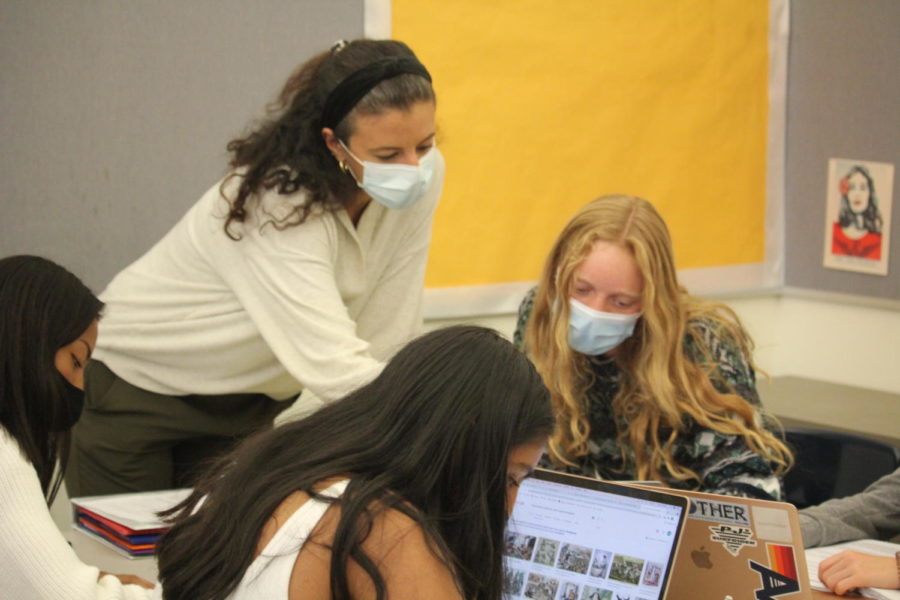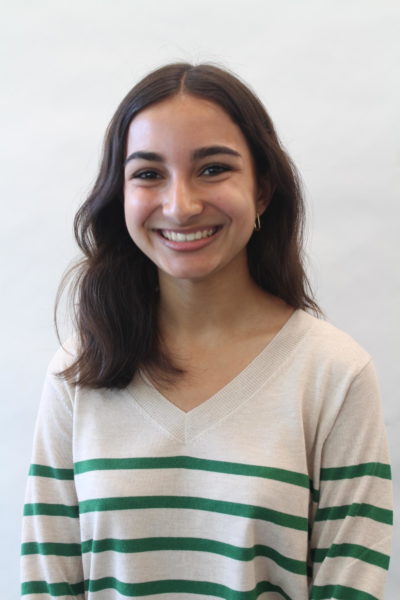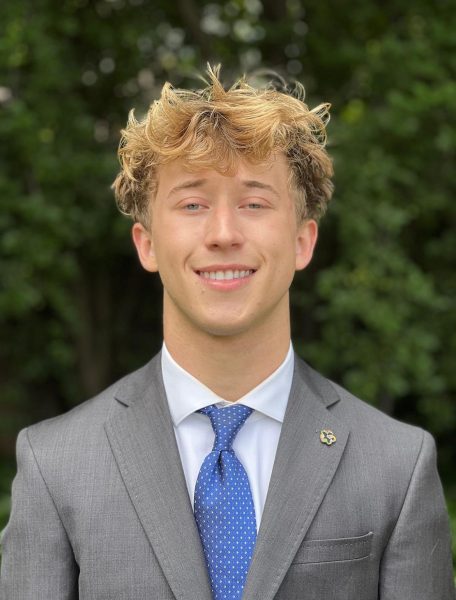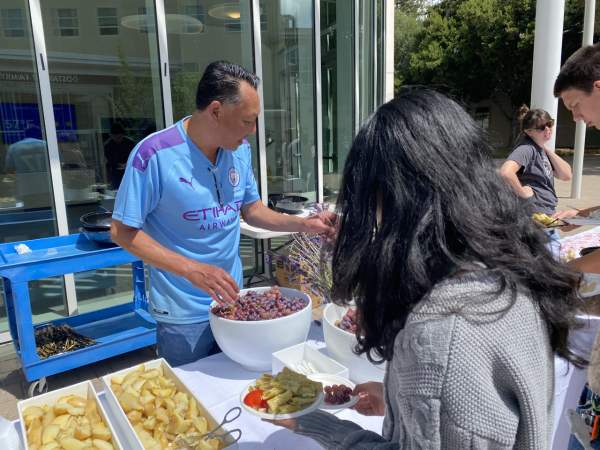Menlo Discontinues AP U.S. History Course
U.S. History Team Lead Katina Ballantyne assists a student during class. According to Ballantyne, the move away from AP U.S. History reflects a broader, nationwide trend. “We see that AP U.S. History is a course that’s been critiqued on the grounds of ‘What does this curriculum include and not include? Is it encouraging cramming over deep understanding?’” Ballantyne said. Photo Courtesy of Roya Rezaee.
April 3, 2022
Beginning this fall, Menlo will no longer offer Advanced Placement U.S. History as a class, and it will instead transition to an honors and non-honors option of U.S. History. Menlo sophomores will no longer be able to take an AP history class, a decision fueled by the administration and faculty’s unhappiness with the AP curriculum.
AP U.S. History covers about 100 plus years of history than the regular U.S. History class does, all in preparation for the AP exam at the end of the school year. “The amount of content that AP expects us to cover between September and April is pretty insane,” AP U.S. History teacher Abby Tieck said in an email to The Coat of Arms.
Sophomore Elizabeth Powell, a current AP U.S. History student, felt stressed about the upcoming AP exam. “The AP test is in six weeks, and we still haven’t learned three of the units we need to know for our test,” Powell said. “I’m going to end up self-studying for a lot of the curriculum.”
In addition to the pace of the content, the AP curriculum does not provide the teacher with much freedom to select which time periods or unique topics to focus on. “As an independent school, we have independence to shape our curriculum. To adopt the AP curriculum means we’re surrendering some of that independence,” Upper School Director John Schafer said.
“The APUSH curriculum is jam-packed. There’s no way for me to know what is most likely to be on the test,” Tieck said. “I end up having to just make common sense choices for what I’m going to cover and what I’m going to leave for the students to cover on their own.” Schafer feels similarly. “Because of the nature of the content, you just cannot cover it all,” Schafer said.
In the new honors option, students will be given more assignments than non-honors students, but they will all be in the same classroom covering the same time periods, a change from the current separation between AP U.S. History and U.S. History.
“We can have a good, engaging, challenging American history class without the hoops that the AP [program] is requiring of us,” Schafer said.
There will also be no prerequisite to enroll in the honors option of U.S. History. The school will put in place “off ramps” for students that enroll in the honors option but then decide to move to non-honors. According to Schafer and Ballantyne, there will be no penalty for moving to the non-honors level in the middle of the year, other than losing the honors credit on their transcript. And because there will be honors and non-honors students in the same class, students will not need to rearrange their academic schedules.
Does the discontinuation of AP U.S. History signal a change for all of Menlo’s AP classes? According to Schafer, the school is assessing the necessity of AP classes at Menlo. “We are taking a closer look at each of the AP classes, and how they fit,” Schafer said.
Schafer also cited nearby independent schools such as Crystal Springs and Castilleja moving away from AP classes and being pleased with the effects as part of the school’s rationale for removing the AP U.S. History course.













